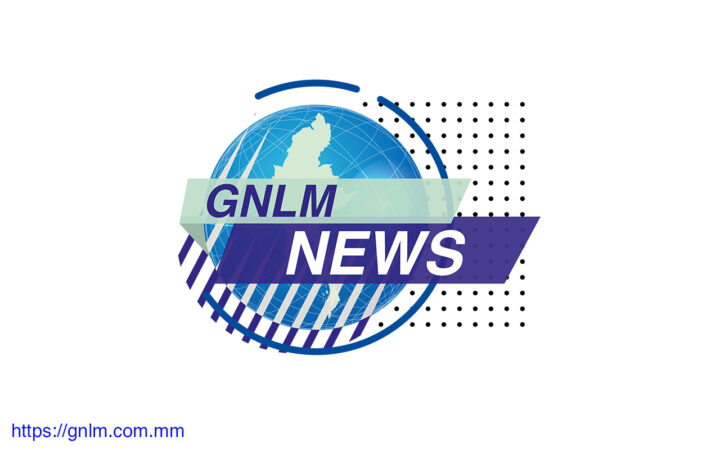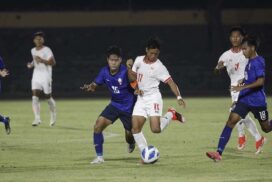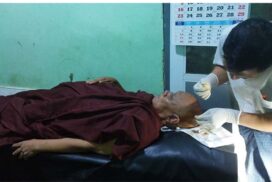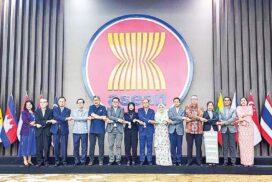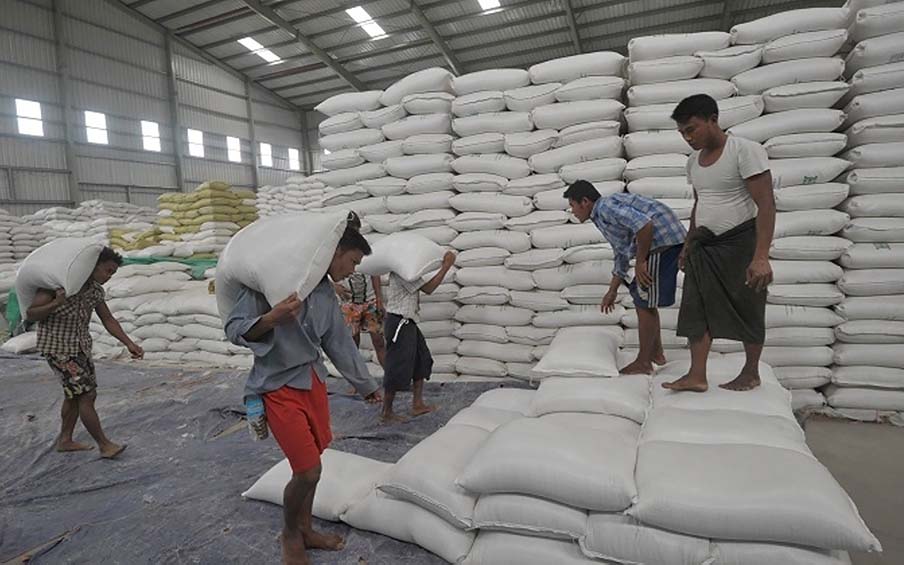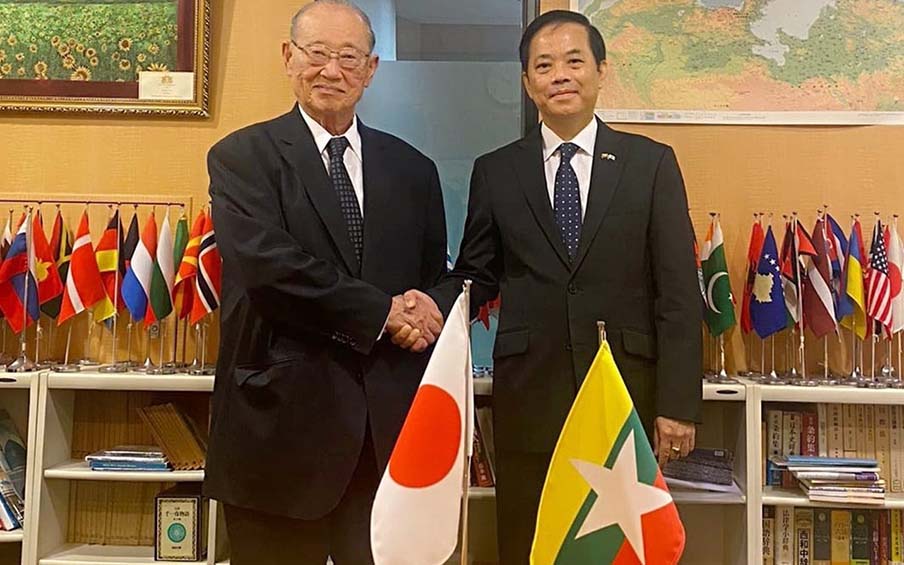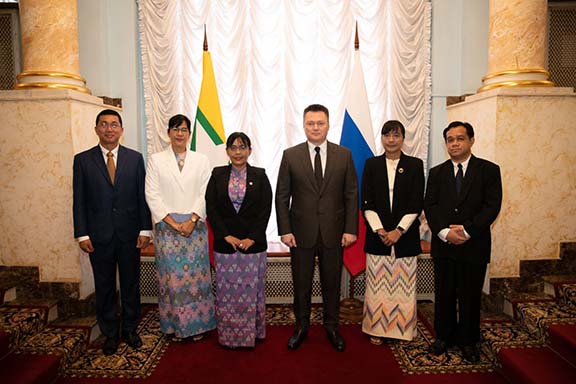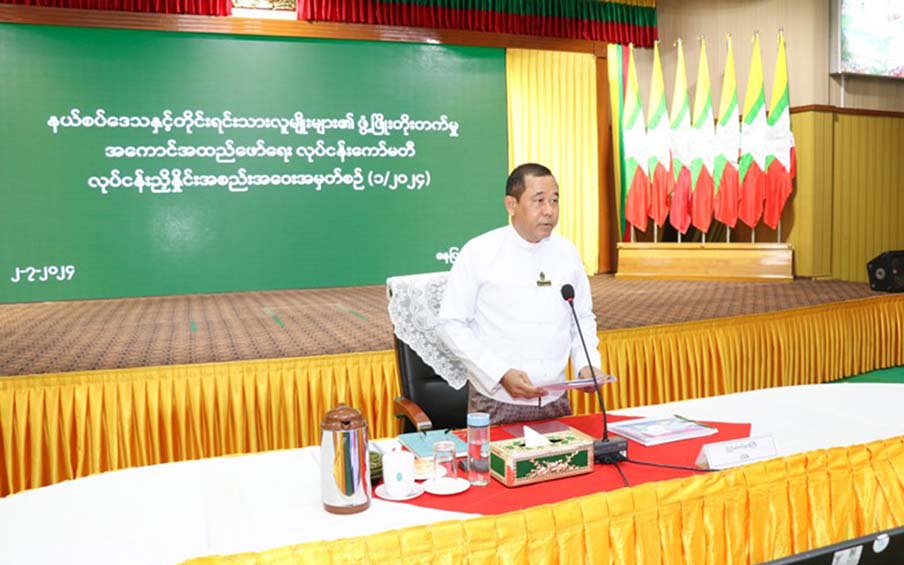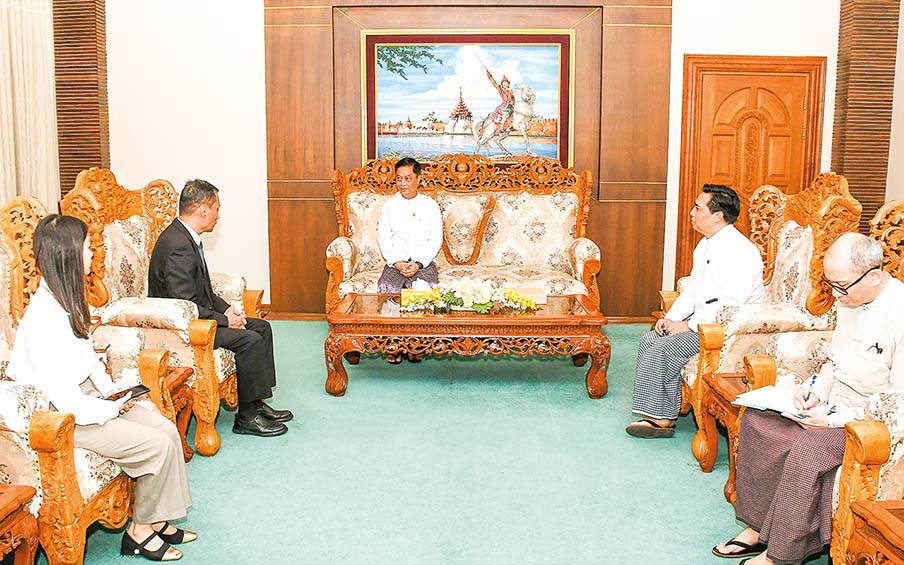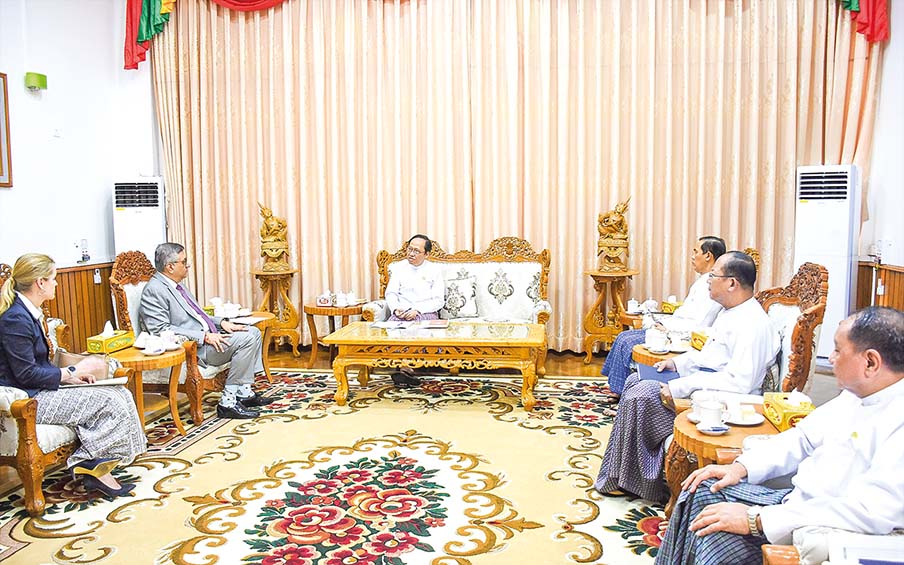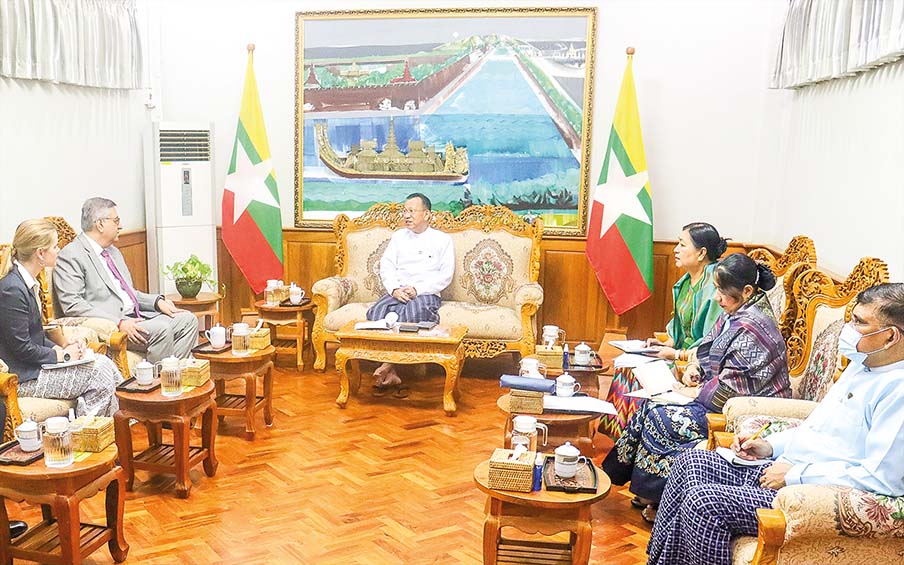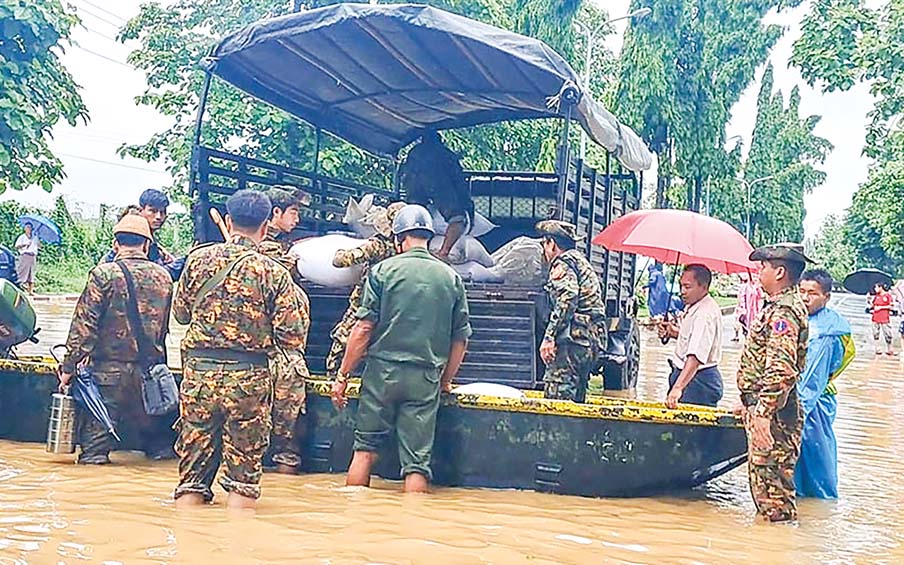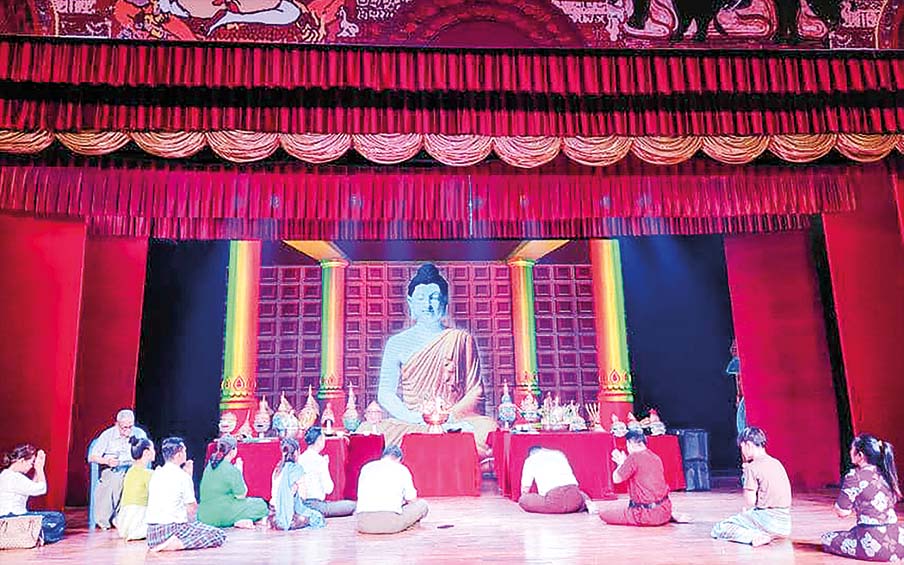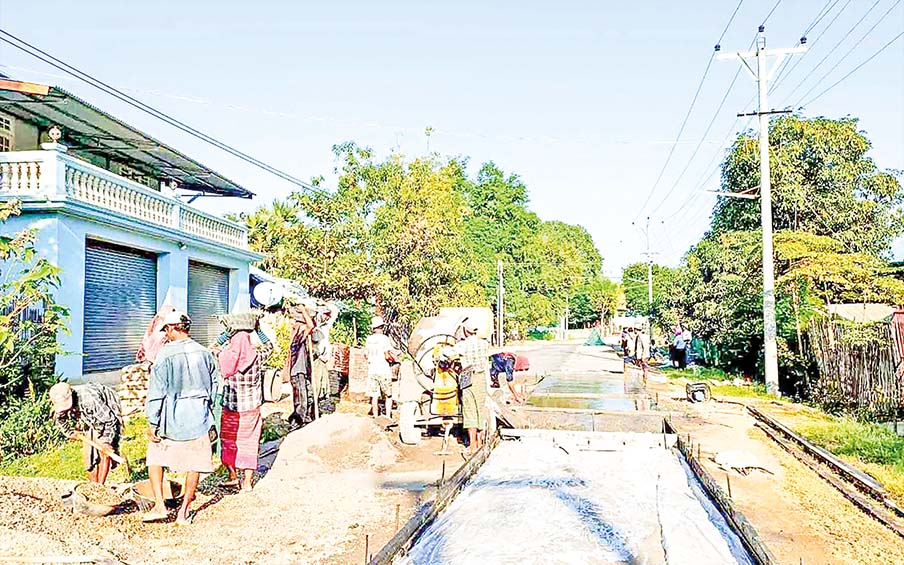Background
ASEAN region’s aspiration and its commitment to lift the quality of life of its people through people-oriented, environmentally friendly geared towards the promotion of not only sustainability but also the resilience of the region. Building a strong foundation of greater understanding and a shared sense of responsibility calls for the advancement of women and their contributions. For the advancement of Women, the ASEAN Committee on Women (ACW) Work Plan 2021-2025 was already issued with seven thematic views: –
• Gender Data and Statistics
• Gender Mainstreaming
• Gender Responsive Climate and Disaster Resilience
• Gender Approach to Enhancing Safety and Protection of Women and Girls
• Women, Peace and Security: Amplify the meaningful and substantive participation of women in promoting peace and security in ASEAN
• Women’s Economic empowerment and the future of work
• Gender-responsive governance and leadership
Through the 2017 ‘ASEAN Declaration on the Gender-Responsive Implementation of the ASEAN Community Vision 2025 and Sustainable Development Goals’, ASEAN Leaders already expressed their commitment to the gender-responsive implementation of the ASEAN Community Vision 2025 across the three ASEAN Blueprints and the Sustainable Development Goals; and, envisaging an inclusive ASEAN where all women and girls are able to reach the fullest of their potentials, has identified the following key actions:
(a) enhancing the ASEAN Member States’ capacity to strengthen national and sub-national sex-disaggregated production of statistics and gender analyses on all Sustainable Development Goals and
(b) establishing reliable regional and sex-disaggregated databases for key sectors to support ASEAN policies and programmes across the ASEAN Community pillars,
(c) Participatory collection, management, analysis, extensive dissemination of and ensuring public access to high-quality, reliable and timely data that is disaggregated by sex, age, and socio-cultural and economic characteristics relevant in national contexts.
The Role of NSPAW as a Road Map
In Myanmar, the National Strategic Plan for the Advancement of Women (NSPAW) will provide support to improve the situation of women and to fully enjoy their rights in accordance with the features of the Constitution of the Republic of the Union of Myanmar (2008). Women and girls hold a special place in society, with priority accorded to them across various domains. Recognizing the disparities in physical strength, men often empathize and assist women in tasks requiring physical prowess. Within the household, while the husband traditionally assumes the role of family leader, it is the wife who exercises control over family matters, reflecting the longstanding customs of Myanmar society. Consequently, it is imperative to empower women to manage affairs at different levels, drawing upon their extensive experience within their families.
Moreover, the National Strategic Plan for the Advancement of Women 2013-2022 (NSPAW) was a pivotal framework designed to elevate the status of women in Myanmar across a broad spectrum of areas. Phase II of this strategic plan, spanning from 2023 to 2032, has been crafted to encompass 12 priority areas aligned with the 1995 Beijing Platform for Action (BPFA). These areas include livelihoods, education, health, violence against women, economics, decision-making, implementation mechanisms, human rights, media, environment, girls’ issues, and armed conflict. Myanmar boasts a population of 55.8 million, comprising 26.7 million men and 29.1 million women, according to estimates from 1 October 2022. It is obvious that women and girls play a pivotal role in enhancing the socioeconomic fabric of the nation.
The Myanmar National Committee on Women (MNCW) has assumed a leadership role in implementing the National Strategic Plan for Advancement of Women (NSPAW). The mission of MNCW includes elevating the capacity of Myanmar women and safeguarding them against violence. In doing so, they can emerge as a dependable force for the state. To achieve these aspirations, relevant ministries and organizations are asked to prioritize gender mainstreaming in conjunction with projects related to the 12 priority areas outlined in the strategic plan. This collaboration among work committees is imperative because comprehensive societal development can only be achieved when women are empowered. The empowerment of women is a linchpin in constructing a prosperous society. As a result, both genders can progressively reduce disputes, contentious issues, conflicts, and friction between them. That will undoubtedly lead to an upsurge in peace and the gradual resolution of problems, from the familial to the national level, contributing to the overall progress of the nation.
In fact, Myanmar recognizes the vital role of women and girls in society. By bolstering the National Strategic Plan, the nation aims to empower women across diverse domains, fostering a more equitable and peaceful society. This commitment to gender equality is not just an investment in women but a step towards a brighter future for all.
Comprehensive National-Level Review and Implementation of NSPAW
Comprehensive national-level reviews should assess progress made in implementation and identify challenges encountered. They should take stock of achievements, identify gaps and setbacks, and outline strategies for addressing those gaps and challenges.
According to the guidance of MNCW, Myanmar is implementing the Operational Plan of National Strategic Plan for the Advancement of Women, NSPAW (2013-2022), in line with the Convention on the Elimination of all Forms of Discrimination against Women (CEDAW). The Four Technical Working Groups (TWG), Violence against Women TWG; Women Participation in Economic and Politics TWG; Women, Peace and Security TWG; and Gender Mainstreaming TWG are formed to implement NSPAW (2013-2022) effectively. The operational plan (2020-2022) has been developed to implement the rest of three years of NSPAW effectively.
In 2019 and 2020, with the support of these technical working groups, Prevention of Sexual Harassment and Abuse in Workplace Policy Mapping, Basic Gender Training PowerPoints, Gender Leadership Training Curriculum and Return and Resettlement of Policy Brief for Internally Displaced Persons were developed. In 2020, the NSPAW review for the implementation of twelve priority areas of the National Strategic Plan for the Advancement of Women (2013-2022) was conducted with the technical support of UN Women.
Based on the NSPAW Review and BPFA +25, the National Strategic Plan for the Advancement of Women (2023 – 2032) is currently being developed. The NSPAW (2023-2032) includes indicators and a results framework to address the weaknesses identified in BPFA +25. To strengthen the ownership and responsibilities of the respective departments, the steering committee for developing this strategic plan (2023-2032) is organized with the Deputy Ministers. The working committees are also organized according to the twelve priority areas, and the Directors-General undertaking as the chairs, the Directors from the respective departments as the secretaries and the gender mainstreaming process regarding the respective sectors are included.
In the implementation of NSPAW (2013-2022), a 24-hour Helpline service for violence against women from different areas of Myanmar was started in November 2016. Survivors can complain not only from the Helpline but also from Facebook and Messenger by sending short messages beginning in January 2022. Now, to easily memorize the Helpline number when making a complaint to the 24-hour Helpline Service, the Department of Social Welfare has arranged a special connection number, “1566”. Case managers who are well-trained by the Department of Social Welfare are addressing the complaints of gender-based violence in accordance with the standard operating procedures on social case management.
Department of Social Welfare organized seven One Stop Women Support Centres (OSWSC) and provided support to a total number of 330 women in One Stop Women Support Centre from 2017 to May 2024. Guidelines were developed and contributed to OSWSCs.
Department of Social Welfare is addressing complaints from the Helpline of States and Regions DSW Offices and Myanmar National Human Rights Commission. It provides support to the survivors of Gender-Based Violence. From April 2017 to May 2024, it can provide financial assistance of over 143.55 million for 1,370 survivors who need legal help and over 174.964 million for 594 survivors who need livelihood beneficiaries from the government budget. Starting from the 2019-2020 financial year to May 2024, financial assistance of 14.878 million is supported for 48 single mothers or women-headed households who are at risk of violence.
Those women who need care have been taken care of at Four Vocational Training Centres, providing livelihood skills and other necessary community-based vocational training courses at 11 Schools for Home Science and IDP Camps; hygiene kits and dignity kits are provided at the IDP camps for the women.
Myanmar upholds the zero-tolerance policy against any form of sexual violence. A Joint Communique of the Republic of the Union of Myanmar and the United Nations on Prevention and Response to Conflict-Related Sexual Violence was signed in December 2018. To implement this Joint Communique, the National Committee on Prevention and Response to Violence against Women in Conflict, its core group, and its working committee are organized, and a one-year national action plan has been extended and implemented as follows according to the permission of State Administration Council-
(a) (10-11-2021) to (10-11-2022) – National Action Plan (first year)
(b) (10-11-2022) to (10-11-2023) – National Action Plan (second year)
(c) (10-11-2023) to (10-11-2024) – National Action Plan (third year)
During the reporting period of the first year, quarterly reports were submitted to the United Nations General Secretary’s Special Representative Office through the Ministry of Foreign Affairs, according to the permission of the State Administration Council Office. For the second year and third year, bi-annual reports are to be submitted.
Gender Mainstreaming and Gender Equality
Since gender mainstreaming and gender equality are becoming the generation of the present, the empowerment of women and girls plays a crucial role. Best practices, experiences, and challenges regarding the national mechanisms for the advancement of women are to be advanced in all three pillars. Since Gender mainstreaming is a cross-cutting issue and with the support of ASEAN, we can have a fuller understanding and more precise picture of Gender Mainstreaming. The following emerging issue is Resilience. Towards climate change, disaster resilience, mass displacement of insecure areas (like in the present) and domestic violence and their impacts are to be aware and try to ease and settle. In this regard, it would enhance the safety and protection of women and girls.
Towards Resilient Community for Women
It is noted that “Resilience” empowers women to navigate the challenges of balancing work and family life, leading to greater economic independence and security, which also encourages persistence in the face of job rejections or workplace discrimination, enabling women to climb career ladders and break glass ceilings. Since it is the inner strength that enables women to navigate through difficulties, overcome barriers, and emerge stronger, it is not just a personal trait but a societal necessity, influencing families, communities, and workplaces. The importance of Resilience in women can be seen in psychological well-being, economic empowerment, social change, leadership and many others. Resilience is fundamental to women’s mental health as women are the ones who face unique stressors, including gender discrimination, societal expectations, and caregiver responsibilities. To foster a positive outlook, they should be aware and have proper training.
Challenges and Way Forward
Since a culture of regional Resilience characterizes the ASEAN, it is committed to respecting the different cultures, languages, religions and peoples of the ASEAN region. For the spirit of” unity in diversity”, ASEAN also emphasizes the common values, fundamental freedoms, gender equality, promotion and protection of human rights, and social justice.
Women empowerment helps improve the standard life of women in rural and cities, preventing crimes against women, reducing domestic violence, bringing lots of social and economic gains, solving societal issues like poverty, unemployment and birth control, and achieving comprehensive growth in every sector of society. It can help in the nation-building process by joining in defense forces, social service, politics, education and corporate levels. Women’s empowerment helps women promote education, which leads to employing a large number of people. It is actually a social development as a whole. Empowering women to participate in and lead public and private institutions makes these institutions more representative and effective. Increasing women’s and girls’ education and access to resources improves the health and education of the next generation.
Self-reliance is a country’s capacity to plan, finance, and implement solutions to its own development challenges. It also includes a commitment to see these solutions through effectively, inclusively, and with accountability. To be effective, individuals within societies must have equal access to opportunities, resources, benefits, and legal protection. In this regard, the role of Myanmar women and their ability to build community cohesion by playing the role of first responders and caretakers at home and in their communities is commendable.
This is also to train their Resilience, as past experiences in Myanmar resulted in exposing women to higher risks and greater burdens from the impacts of climate change. Women’s empowerment and economic development are closely interrelated. While development itself will bring about women’s empowerment, empowering women will bring about changes in decision-making, which will have a direct impact on development.
In 2025, the global community will mark the thirtieth anniversary of the Fourth World Conference on Women and the adoption of the Beijing Declaration and Platform for Action 1995, as well as ten years of the 2030 Agenda for Sustainable Development and its Sustainable Development Goals. Leading up to the anniversary, there should be a comprehensive national-level review process led by the government that involves all stakeholders. Reviews should be inclusive and mobilize all branches and levels of government, civil society organizations, the private sector, the entities of the United Nations system and regional and international organizations, academia, the media and other stakeholders. The challenges ahead are waiting for the advancement of women, and they call for collaborative efforts from the institutions and organizations related to Myanmar women.
According to the experiences of ASEAN and other countries and those of USAID which are doing for the advancement of women, here are some recommendations: to reduce disparities between women and men in access to, control over, and benefit from economic, social, political, educational, and cultural resources, as well as wealth, opportunities, and services; strive to eliminate GBV, which affects women’s abilities to thrive and succeed, and mitigate its harmful effects on individuals and communities so that all people can live healthy and productive lives; to increase the capability of women and girls to exercise their fundamental and legal rights fully, determine their life outcomes, assume leadership roles, and influence decision-making in households, communities, and societies; to support strategies and activities that secure private-property rights and land tenure for women; and, to improve the access of women and girls to education, including opportunities for higher education
Last but not the least, to recall the World Bank President, James Wolfensohn, addressing the Fourth UN Conference on Women, who said: –
“Education for girls has a catalytic effect on every dimension of development: lower child and maternal mortality rates; increased educational attainment by daughters and sons; productivity; and improved environmental management. Together, these can mean faster economic growth and, equally important, wider distribution of the fruits of growth … More education for girls will also enable more and more women to attain leadership positions at all levels of society, from health clinics in the villages to parliaments in the capitals. This, in turn, will change the way societies will deal with problems and raise the quality of global decision-making.”

